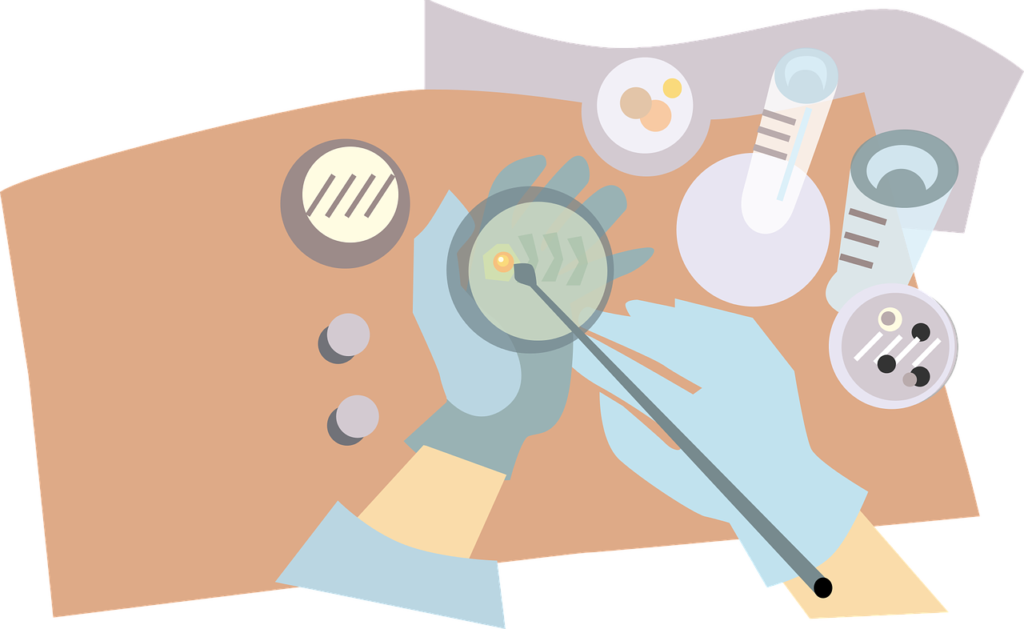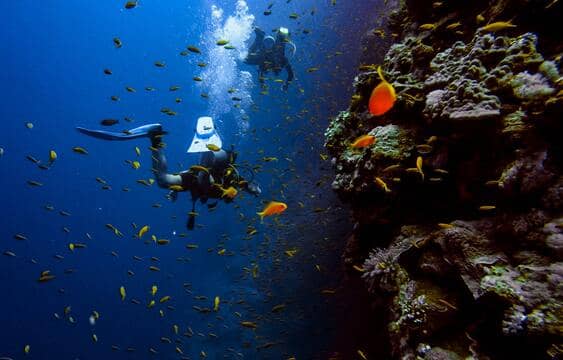- If you’re exploring biology degree careers, you’ll find the options are endless.
- Biology majors don’t need to get a graduate degree to have a successful career.
- If you have a biology degree, many career paths include working with animals, working with children, working outdoors or working in research.
Although most undergraduates majoring in biology intend to apply to a professional school (medical, dental, pharmaceutical) or graduate school, many will never actually do so. This begs the question: what kind of careers can you have with a biology degree?
A biology degree offers diverse career options, ranging from research and healthcare to environmental science and policy. To find the right career path, it’s crucial to identify your personal interests and skills, as well as understand the significance of biology in addressing global issues and enhancing our understanding of life processes.
Tips for Pursuing a Career in Biology
To kickstart a successful career in biology, it’s essential to seek out research opportunities during undergraduate studies. Hands-on experience in research projects provides valuable skills and exposes you to various aspects of the scientific process. Collaborating with faculty and peers on research projects also helps build relationships and develop teamwork skills.
Developing interdisciplinary skills and knowledge is vital for a well-rounded biological career. Proficiency in mathematics, statistics, and programming allows you to analyze data and tackle complex problems in biology. Combining biology expertise with other disciplines, such as computer science or engineering, can open up new career paths and opportunities.
Networking and engaging with professionals in the field can significantly impact your career development. Attending conferences and workshops provides insights into the latest research and trends in biology and allows you to connect with potential mentors, collaborators, and employers. Professional networking is crucial for discovering job openings, internships, and research collaborations.
Lastly, consider pursuing higher education, such as a master’s or doctoral degree in biology. Advanced degrees offer opportunities for specialization, allowing you to focus on a specific area of interest and gain in-depth expertise. Earning a higher degree can also lead to career advancement, opening doors to positions in research, academia, and industry leadership.

Popular Biology Careers
For those who end up not attending graduate school after completing their bachelor’s degree in biology, you’ll find there are plenty of biology-related career paths for you to consider. The knowledge you’ve gained as a biology major will set you up for success in any one of these careers. Biology majors can explore careers in the following fields: biotechnology, pharmaceuticals, environmental science, research, teaching at the college level or high school level, and more. Some of these career paths might require supplemental education or certification. Here’s our list of popular biology careers:
Research Scientist
One of the most sought-after careers for biology majors is that of a research scientist. These professionals delve into various areas of biology, such as molecular, cellular, and ecological research. Research scientists are responsible for designing and conducting experiments, analyzing data, and sharing their findings with the scientific community. To pursue this career, a master’s or doctoral degree in a specific biological field is typically required, along with strong analytical and problem-solving skills.
Biotechnologists
Biotechnologists use biological processes to develop new products and improve existing ones. They work in diverse industries, including agriculture, pharmaceuticals, and environmental management. Biotechnologists often have a strong foundation in molecular biology, genetics, and biochemistry. A bachelor’s degree in biology or a related field is typically the minimum educational requirement, although advanced positions may require a master’s or doctorate.
Healthcare Professionals
Healthcare professionals with a background in biology can pursue various career paths, such as physicians, pharmacists, and medical laboratory scientists. These roles involve diagnosing and treating illnesses, dispensing medications, and performing diagnostic tests, respectively. While a bachelor’s degree in biology can serve as a stepping stone, additional education and licensing are required for most healthcare positions.
Environmental Scientists
Environmental scientists focus on studying and addressing environmental issues, such as pollution, climate change, and habitat restoration. Their work is critical in formulating policies and creating sustainable solutions for our planet. A bachelor’s degree in biology or environmental science is typically required for entry-level positions, with advanced degrees needed for specialized roles or research positions. Strong analytical, observational, and communication skills are essential in this field.
Biologist
A biologist is someone who studies living things. They study the way animals and plants are built, how they grow and evolve, and how they adapt to different environments. This career path is what you might think of when you think about biology degree careers. It might be the most traditional career path for biology degree holders. Biologists can work in a variety of settings from universities to government agencies or private companies. Biologists usually have at least a bachelor’s degree in biology or another related field such as animal science or ecology.
Zoologist
Zoologists are people who study animal life, both past and present. They have a wide variety of skills and responsibilities that they need to be able to do. A zoologist needs to be able to study and classify animals, identify their habitats, understand their behavior, and know how they interact with each other in ecosystems. They also need to know about the evolution of animals and how humans impact them.
A zoologist can work in various settings. They can work in a museum, zoological garden, university, zoo, or wildlife reserve. If you love working with animals, and love learning about how they interact with each other and their environment, becoming a zoologist might just be the perfect career path for those with a degree in biology.
Marine Biologist
Marine biologists study organisms that live in marine environments, such as the ocean, sea, and coastal habitats. The study of how marine life interacts with each other and their environment, as well as how they can be used to improve human lives. Careers in marine biology are great for those who love exploring and being in the water. If this is what you’re passionate about, you should consider colleges that have marine biology programs.
Ecologist
Ecologists work in a variety of fields, including research, consulting, education and government, environmental education, fisheries management, forestry management, and wildlife management.
The jobs of ecologists vary depending on their field. Ecologists may do research and write reports on environmental issues. They may also consult with businesses to help them reduce their environmental impact. They may work outdoors or in an office setting. Ecologists typically use computer programs to analyze data collected from the field.
Science Teacher
Becoming a science teacher is a rewarding career for a biology grad looking for an excellent schedule (afternoons off and closed in the summer). Depending on the state you live in, the necessary requirements may be more or less strict for attaining your certification. Where the need is greater, the specifications will be less stringent, and temporary certification can be granted while you are working toward full certification.

Lesser-Known Careers in Biology
Science Writers
Science writers and journalists play a crucial role in communicating scientific discoveries and concepts to the general public. They may write articles, produce multimedia content, or contribute to news programs. Science communication is vital for fostering scientific literacy and encouraging informed decision-making in society. While a bachelor’s degree in biology or a related field is often required, strong writing and communication skills are essential to excel in this career.
Bioinformatics Specialists
Bioinformatics specialists bridge the gap between biology and computer science, using computational methods to analyze and interpret biological data. They work in various research and industry settings, such as genomics, proteomics, and drug discovery. To succeed in this field, a strong foundation in biology, programming, and data analysis is necessary. A bachelor’s degree in bioinformatics, biology, or a related field is typically required, with advanced degrees preferred for specialized roles.
Patent Examiners
Patent examiners and intellectual property consultants work with inventors, researchers, and companies to secure legal protection for biological innovations. They evaluate patent applications, conduct prior art searches, and provide guidance on intellectual property strategies. Patents and intellectual property are crucial for incentivizing innovation and safeguarding investments in biology-related industries. A bachelor’s degree in biology or a related field is often required, along with specialized knowledge of patent law and regulations.
Science Policy Advisors
Science policy advisors contribute to the development and implementation of policies that impact research, innovation, and the application of scientific knowledge. They work with government agencies, non-profit organizations, and private sector entities to address complex issues, such as funding, ethics, and regulatory frameworks. Science policy plays a critical role in shaping the direction of scientific research and its societal implications. A bachelor’s degree in biology or a related field is typically required, with advanced degrees and experience in policy or public administration preferred.
Technical Editor
Technical editing is a career that uses your science background combined with strong grammar skills and attention to detail. Scientific journals and magazines hire technical editors to review articles for clarity and style. After 2 years of experience, you can apply for BELS (Board of Editors in the Life Sciences) certification, which will open greater opportunities for full-time or freelancing positions.
Pharmaceutical Sales
Pharmaceutical sales is an excellent career for biology grads who are comfortable meeting new people and confident in their ability to sell. Commuting and travel are often requirements of this field, but the salary is often quite good for successful salesmen. You are expected to be polished in sales, meaning an investment in your wardrobe is required.
Lab Assistant
A natural path for a biology grad is to become a laboratory assistant. On any campus and in almost any lab, there is a need for a cornerstone person who organizes and structures the lab. From ordering supplies to training undergraduates, the lab assistant plays a vital role in keeping things running smoothly. Of course, you will also play a part in the research that is going on in the lab.
Cytotechnologist
A cytotechnologist is someone who works in a hospital laboratory preparing and observing samples under a microscope. This career requires approximately one year of schooling after your bachelor’s in biology is achieved. A listing of cytotechnology programs can be found on the American Society of Cytopathology website.
Nursing
Nursing as a second degree, or an alternative route, also requires approximately one year of schooling after your bachelor’s degree. There are ever-increasing careers for nurses, meaning there are more incentives than ever. It is possible to get a great deal of your education paid for by a hospital if you sign an agreement to work for them after you complete your schooling.
Final Thoughts for Those Seeking a Career in Biology
A biology degree opens the door to a diverse array of career options, from research and healthcare to biotechnology and environmental science. To find the right career path in biology, it’s essential to explore your personal interests and skills, ensuring a fulfilling and rewarding professional journey.
With a little creativity and a willingness to fulfill specific requirements, a postgraduate with a bachelor’s degree in biology can find many different career options. Find what you’re passionate about – whether that is animals, the environment, plants, or teaching others about your passion for the subject – and pursue that career path.

